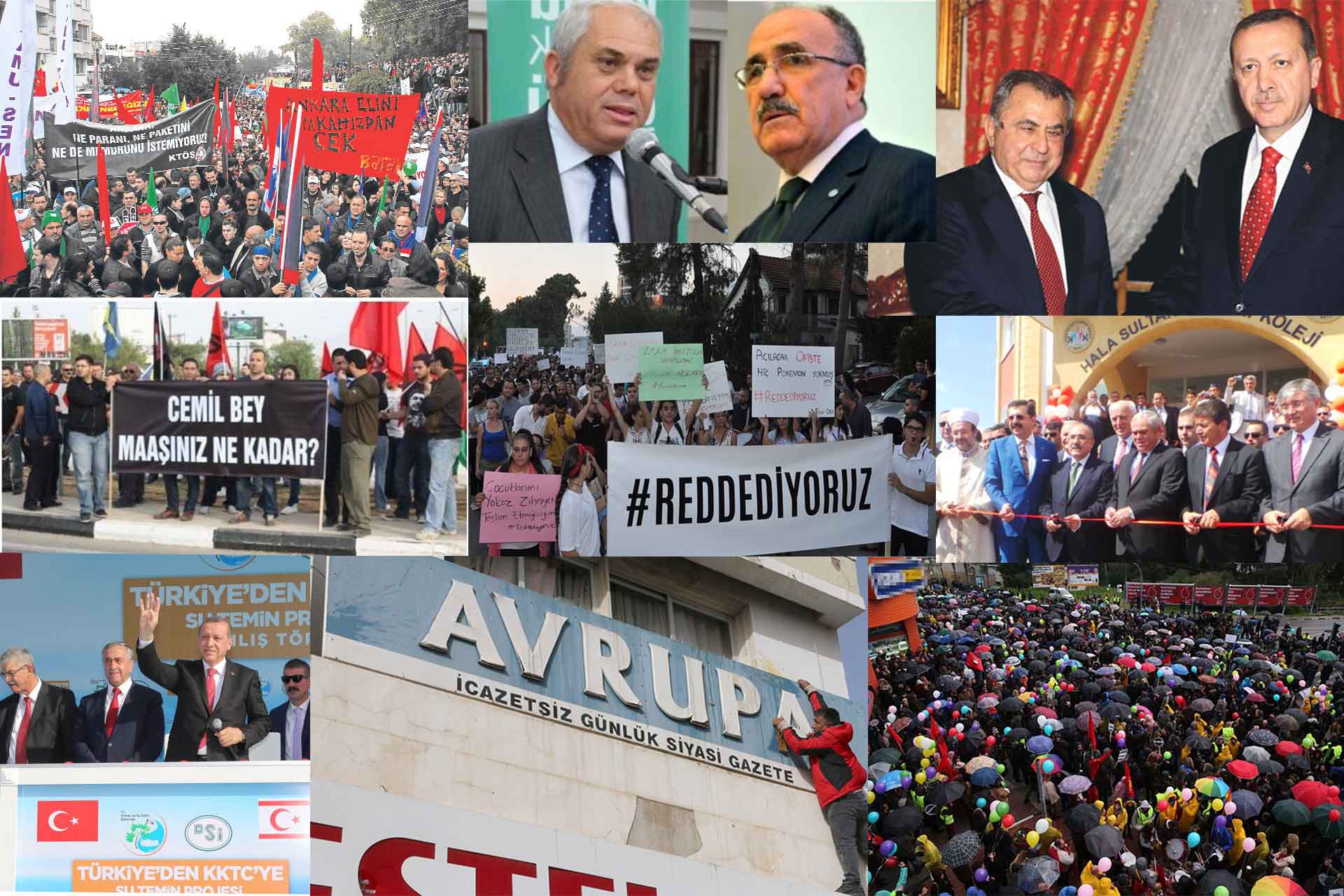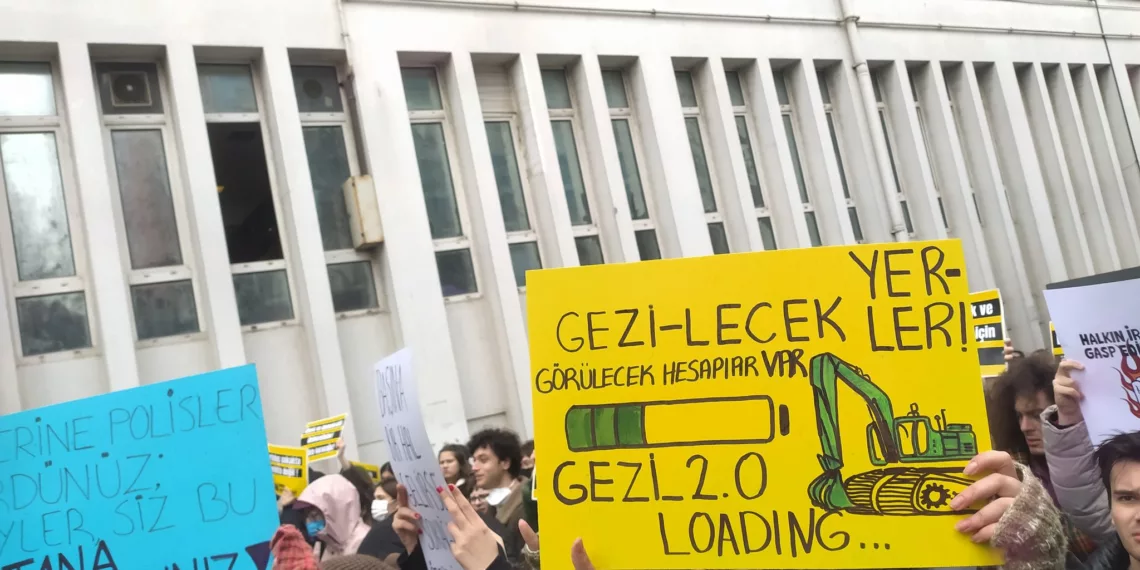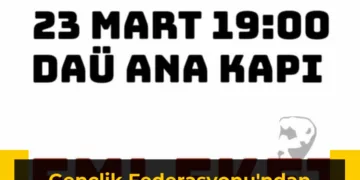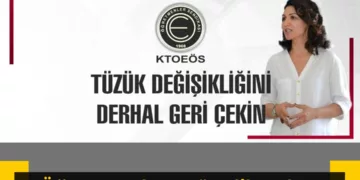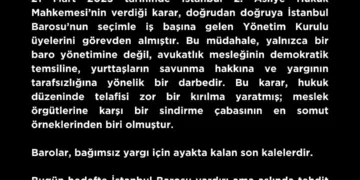Gazeddakıbrıs compiled the crises arising from Turkey’s interference in the last 10 years in an effort to refresh memories, and also because remembering is a form of resistance.
By Gazeddakıbrıs
Translation: Esra Aygın
After 2004, an ever-increasing period of tension began between Turkish Cypriots and the government of Turkey. The initial ‘democratization’ process of AKP gave way to policies built on tension, conflict and destruction. These new policies had and still has a big impact on the northern part of Cyprus.
AKP’s social, cultural and economic domination and impositions that heightened especially from 2010 onwards, created serious unrest in the community. This unrest has revealed that not only the relations between AKP and the northern part of Cyprus, but also the institutions in the north are shaped by the dominance and superiority of Turkey.
Gazeddakıbrıs compiled the crises arising from Turkey’s interference in the last 10 years in an effort to refresh memories, and also because remembering is a form of resistance.
***
2010, “How much is your salary?”
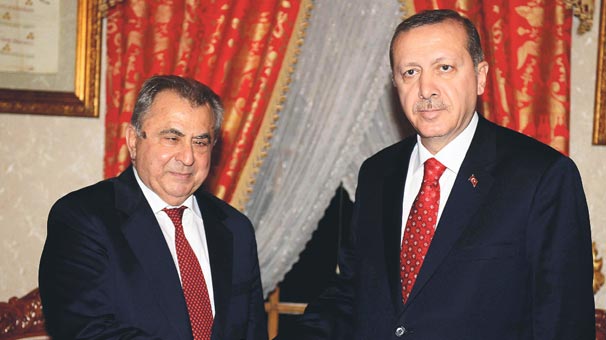
Turkish Prime Minister Recep Tayyip Erdoğan, during a joint press conference with the TRNC Prime Minister İrsen Küçük, asked him: “How much is your salary?” İrsen Küçük responded: “Seven and a half, eight sir.” This dialogue created tension in the northern part of Cyprus.
2010, protests
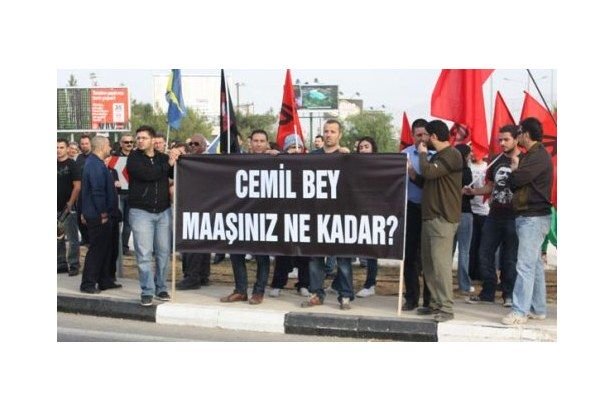
Trade unions protested Cemil Çiçek, the Turkish state minister responsible for Cyprus affairs at the Ercan Airport. The trade unions unfurled banners that read “‘Cemil Çiçek how much is your salary’, ‘This country is ours’ and ‘Our country is not for sale.’” In response, Çiçek said: “They are like the ones in the South.”
2011, ‘Servant’ crisis
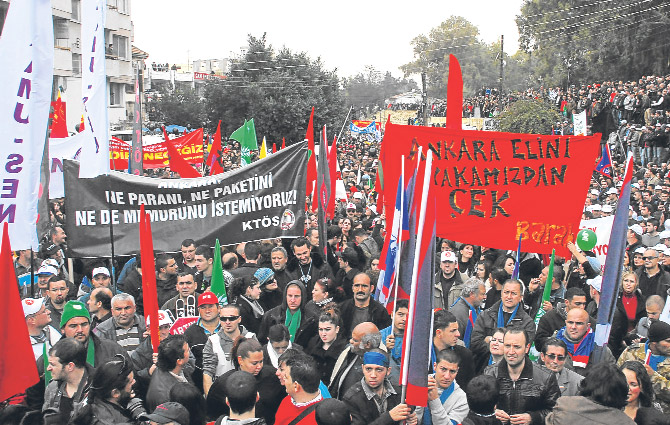
At the Communal Existence Demonstration on 28 January 2011 that was organized in protest of economic austerity measures and reactionary policies by Turkey, there was a banner that read “Ankara Get Your Hands Off Our Neck.” Erdoğan responded by calling Turkish Cypriots ‘servants, who are dependent on Turkey.’ “There are provocative demonstrations recently in North Cyprus,” Erdoğan said. “They are organizing these together with the South. They are telling us to get out. They don’t have the right to demonstrate against Turkey like this. My undersecretary receives around 5 thousand… The gentlemen there receive 10 thousand liras, and still have the face to demonstrate against us. They are telling Turkey to ‘get out of here.’ Who do you think you are?… I have martyrs, I have veterans, I have strategic interests there. Turkey is strategically involved in Cyprus just as Greece is. It is rather significant that those, who are fed by our country are going down this road. We are supporting them. Should there not be some sort of reciprocity?”
2011, Halil İbrahim Akça crisis
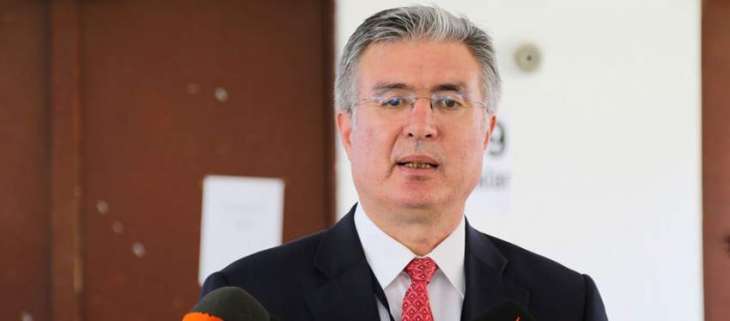
Halil İbrahim Akça, who served as the head of Turkish Aid in the northern part of Cyprus got appointed as Turkish ambassador. This led to a new crisis. When Akça was serving as the head of Turkish Aid, he had told the TRNC president of the time Derviş Eroğlu during a visit that: ‘Turkish Cypriots should be punished.” This had prompted Derviş Eroğlu, to ask Turkey in a letter to not appoint Halil İbrahim Akça as Turkish ambassador in TRNC. Subsequently, AKP appointed Akça as the Turkish ambassador. Akça’s appointment as Turkish ambassador drew reaction by mainly trade unions and other circles.
2011, Police violence
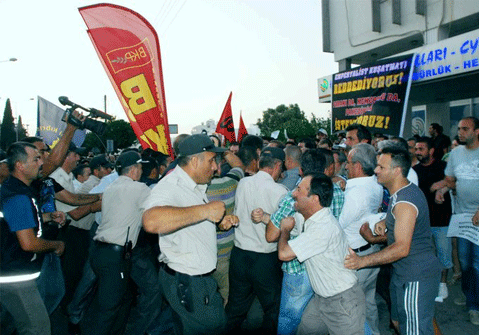
In July, Turkish Prime Minister Recep Tayyip Erdoğan came to Cyprus. Various organizations protested him in front of the building that used to be the headquarters of the closed-down Cyprus Turkish Airlines. Police intervention in the peaceful, non-violent protest was severe. A number of police officers assaulted the protesters.
2013, Hello Beşir crisis
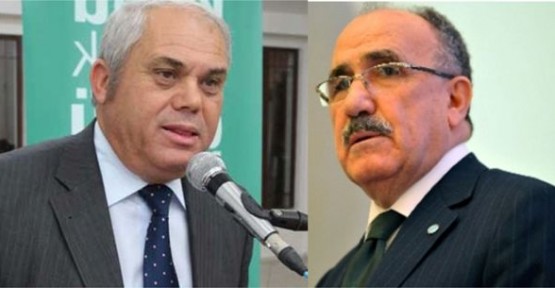
As the Republican Turkish Party CTP and Democratic Party DP were close to finalizing coalition negotiations following parliamentary elections, AKP’s state minister for Cyprus affairs Beşir Atalay called CTP Head Özkan Yorgancıoğlu to encourage him to form a coalition with the National Unity Party UBP rather than DP. The phone call took place during the CTP party assembly just before a vote on the coalition with DP. The phone call became public soon and turned into a crisis. Beşir Atalay’s call was seen as a direct interference with the will of Turkish Cypriots and led to reactions.
2013, Hala Sultan College
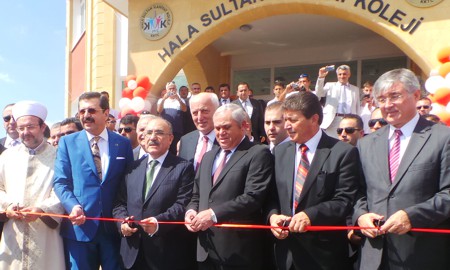
Hala Sultan Theology College has led to a lot of tensions since it opened in 2013. The parents and unions collided on various occasions. The allegations that the education at the theology college is religious and reactionary became a constant source of tension in the community. The increase in religious education and Quran courses is still seen as a consequence of AKP’s reactionary policies.
2015, ‘Infantland’ crisis
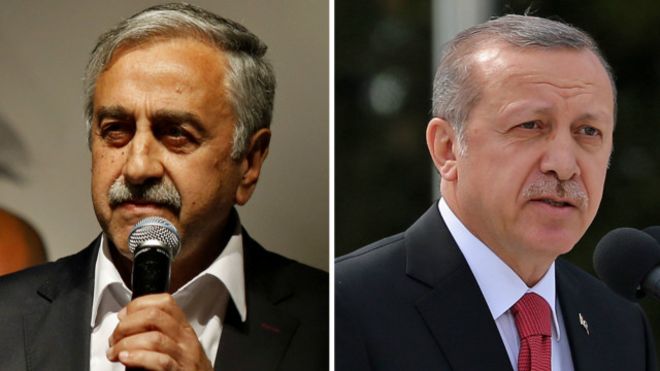
Recep Tayyip Erdoğan attacked President Mustafa Akıncı saying “his ears should hear what his mouth is saying” in response to his call for a “relationship between brothers” with Turkey rather than one of a “motherland” and an “infantland.”
After Mustafa Akıncı was elected President, he stated that “We are no longer an infantland. We are brothers with Turkey.” This statement caused Erdoğan to spill out his anger on Turkish Cypriots. In response to Akıncı’s statement, Erdoğan said: “This term is an expression of warmth. Mr. Akıncı is a president elected by the people of TRNC. If you say we are two brotherly countries, then you are painting a very different picture. Mr. president’s ears should hear what his mouth is saying. There is a reason why Turkey is looking after TRNC. Even being brothers has certain preconditions. This country has paid a price for North Cyprus. We have martyrs there. We continue to pay a price. Who is fighting for North Cyprus in the international arena? I wonder if Mr. Akıncı believes that he can fight alone. Turkey sees North Cyprus as the infantland and it will continue to do so. The rest is his personal opinion. He may backtrack from these later. And that would be a shame.”
2015, Water crisis
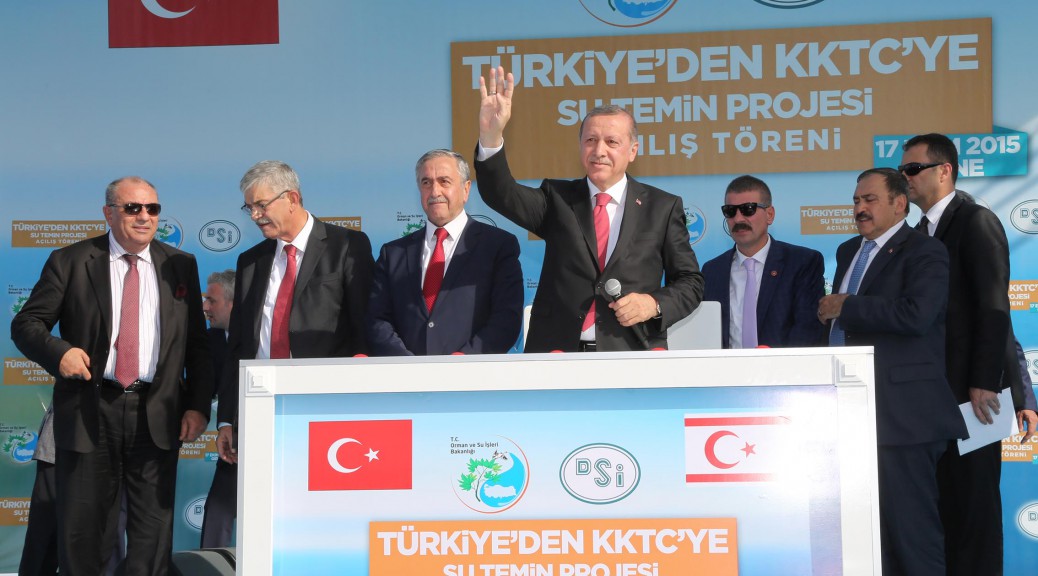
The process of transporting water from Turkey to Cyprus through a pipeline started and ended with crises. The public opposed water from Turkey on grounds that it would increase dependence on Turkey and disturb the ecologic balance. A platform was established with the participation of political parties. Certain municipalities opposed it. This created tension with Turkey. The coalition government, which included CTP signed the water agreement. A number of CTP deputies and members later backtracked from their arguments and started voicing that bringing water from Turkey was an unfavorable step.
2016, ‘We Reject’ and Coordination Office crisis
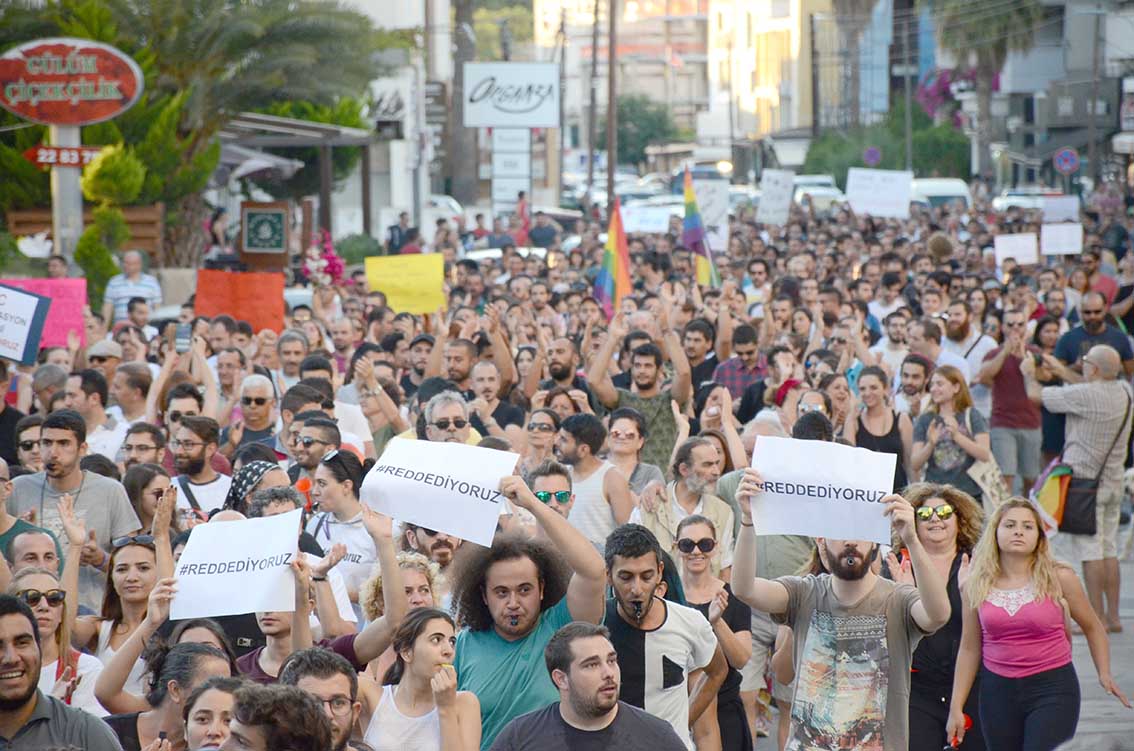
There was opposition to the establishment of a Youth and Sports Coordination Office by Turkey in the TRNC on grounds that this would threaten the Turkish Cypriot youth’s future. The ‘We Reject Platform,’ led by the youth staged large demonstrations. The Turkish Cypriot Constitutional Court decided against the law related to the establishment of the Coordination Office by Turkey.
2018, 22 January events

Recep Tayyip Erdoğan reacted against the Afrika newspaper for calling Turkey’s operation in Afrin a “Second Invasion.” He pointed Afrika as the target. The organizations connected with AKP in the northern part of Cyprus attacked Afrika and damaged the building. They later climbed on the roof of the parliament and waved Turkish and İyi Parti (Good Party) flags. The public reacted strongly. Trade unions and other groups organized a large demonstration.

Thousands marched against fascism and AKP domination under pouring rain.
2019, Education protocol crisis

During the CTP-TDP-HP-DP coalition, the TRNC education ministry was pressured by the AKP to sign an agreement with the Turkish Education Ministry that would transfer the authority over the Hala Sultan Theology College to Turkey. This pressure led to a crisis. Turkish officials refused to meet with the education minister, who was from the Social Democracy Party TDP. All appointments were cancelled. The signing of the agreement became a precondition for any appointment or meeting.
2019, Peace crisis

While all parties and the government supported Turkey’s war in northern Syria, President Mustafa Akıncı made a statement that underlined the importance of peace. “It is called ‘Peace Spring’ but what is flowing is blood, not water,” said Akıncı. His statement gave rise to a lynch campaign led by AKP and its supporters in Turkey and the northern part of Cyprus. Erdoğan told Akıncı: “Know your place. You are sitting at that post thanks to us.” The support and solidarity for Akıncı grew with the lynch campaign. Akıncı took legal action against the death threats against himself and members of his family.

